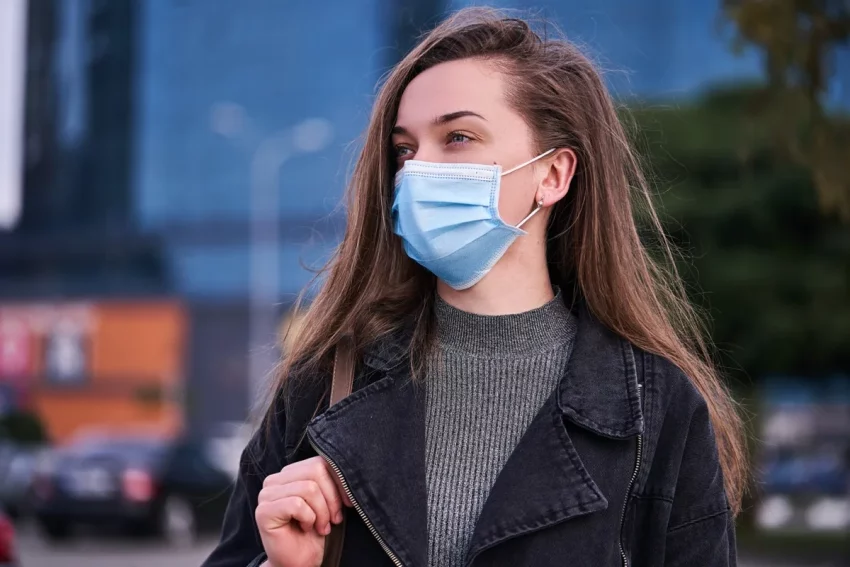Typically, during this season, a significant number of us would be organizing our ideal summer closet as we plan for radiant climate and unfamiliar occasions.
All things being equal, clothing deals plunged by 34% in Spring as a large part of the total populace is presently unfit to travel abroad or even associate in the midst of lockdown limitations.
“Nobody needs to purchase garments to sit at home in,” as Next’s CEO Simon Wolfson set it last month.
The design business has been harmed by the Covid flare-up on each possible level; creation has stopped, retailers have shut, request has dove.
“It has prompted a genuinely existential emergency for the style business,” says Imran Amed, the pioneer and President of The Matter of Design, a main industry site which has created a report about the effect of the Covid flare-up.
“This is an industry which is still as a rule subordinate goodness actual retail. Over 80% of exchanges in the style business actually occur in actual stores.
“Added to that, numerous purchasers just aren’t keen on purchasing garments at this moment. There’s such a lot of spotlight on buying fundamental things to get by during the lockdown and I believe everybody’s brains have normally been centered around that. So design simply turns into an after-thought, or no thought by any means in that sort of setting.”
Uniqlo store
Uniqlo, which has shut down its high road stores, has limited things like running bottoms and stockings on its site
With deals so low, there are inquiries concerning what will befall the current supply of garments developing in stores and distribution centers.
“In contrast to food or a few medications, [fashion] items don’t go off. Be that as it may, many become unpopular,” noticed The Business analyst. “Now and again, likewise with occasional attire assortments, rather rapidly.”
With an end goal to keep up with some pay, numerous high road retailers are selling anything they’re ready to at altogether limited costs on the web.
Hole and H&M, for instance, have been offering mid-season deals, while Uniqlo is advancing limited solace wear things individuals are probably going to require at home, like running bottoms and stockings. (Browns in London has revealed a 70% increment in deals of loungewear.)
It’s probably more brands and retailers will offer limits over the long haul, Amed notes, which will harm net revenues, yet he is confident that the style schedule being noticeably off will not be as large an issue as many apprehension.
“We generally need to keep in mind there are two halves of the globe on the planet, so when it’s late spring in one spot it’s colder time of year in another,” he says. “What’s more, I think there are imaginative ways we could imagine to reallocate those assortments.
“Yet, with respect to dress becoming unpopular, there are simply such countless various types of patterns and feel now that I think the possibility of things being in or unfashionable is less stamped now than it was perhaps 10 or a long time back.
Imran Amed
Business of Style Chief Imran Amed says the design business is confronting an “existential emergency”
“I’ve really known about certain planners who are saying, ‘the assortment I displayed for spring/summer 2020, we’re about to sell that in spring/summer 2021’. That won’t be an answer that works for each brand, however I think traversing what is happening will require some genuine horizontal reasoning and innovativeness.”
With deals presently low, many brands have suspended publicizing – albeit some keep on utilizing virtual entertainment powerhouses to advance items.
Emily Canham, who has in excess of 700,000 Instagram adherents, routinely advances administrations and items including wellbeing food sources, make-up, real time features, occasions and garments.
“For me right currently it’s truly about paying attention to my adherents about what feels suitable,” Canham tells BBC News. A portion of her new posts have been intelligent of her ongoing way of life under lockdown – not in every case essentially advancing something.
She adds: “My supporters for the most part wear what causes them to feel perfect and strong instead of sticking to conventional occasional patterns. It’s about how you wear it, not what season it’s well used in.”
As things stand, it’s not satisfactory whether September’s Style Weeks will go on in London, Paris, New York and Milan, and provided that this true structure they might take – originators might actually communicate design shows on the web assuming that social removing measures are still set up, for instance.
May’s Met Occasion, a yearly feature of the design schedule, has currently actually moved on the web, with Billy Doorman empowering individuals to reproduce their #1 honorary pathway checks home out.
Yet, even once the Covid pandemic has settled fairly, but lengthy that might take, there are inquiries concerning what the design business will resemble.
“I feel firmly that when we emerge at the opposite end, individuals’ qualities are truly going to have moved,” Vogue proofreader Woman Anna Wintour said a week ago.
“I believe it’s a chance for us all to take a gander at our industry and to take a gander at our lives, and to reexamine our qualities, and to truly ponder the waste, and how much cash, and utilization, and overabundance that we have all enjoyed and how we truly need to reconsider what this industry depend on.”
The design business is enormously dirtying, delivering around 1.2 billion tons of fossil fuel byproducts each year – and for quite a while has been under tremendous strain to turn out to be more economical.
Lady Anna Wintour
Lady Anna Wintour, imagined at Milan Design Week in February, says the style business should “reconsider”
Much has been made of the harming impact of supposed “quick style” specifically, where customers purchase something modest, barely break it and afterward toss it down. It was the subject of a BBC Three narrative last year.
Woman Anna said the business should “dial back” so that individuals can “appreciate it substantially more” without continuously searching for the following new thing.
“The discussion about maintainability and the style business has been happening for quite a while now, so this is certainly not another discussion, yet I really do think what is going on is an extraordinary gas pedal,” Amed says.
“It will speed up the design business’ commitment with computerized innovation, and its craving to reconsider the style schedule, however it will likewise speed up the way to deal with manageability and building mindful organizations. That implies utilizing supply chains that are making clothing in a roundabout manner and consider the effect in the world and individuals who make our garments.”
With respect to the ongoing development of stock, he adds: “In the past specific organizations and brands would obliterate items however that is turned into a training which is disliked at this point.”
Lady Vivienne Westwood has been a specific boss of supportability, collaborating with green associations and making her business all the more ecologically proficient.
Joe Lycett introducing BBC One’s The Incomparable English Sewing Honey bee
Joe Lycett presents The Incomparable English Sewing Honey bee on BBC One
At the point when supportability and monetary restrictions are extremely important to individuals, the send off of the most recent series of The Incomparable English Sewing Honey bee on BBC One could barely have been more fitting.
Like The Mechanics Shop, it gives commonsense tips and empowers inventiveness and specialty at home – a counteractant to a culture of binning something and purchasing another one.
“Last year, home-made garments appeared to be just about as antiquated as steam trains and oil lights,” said The Day to day Mail’s Christopher Stevens in his survey of the show. “In any case, assuming that lockdown continues significantly longer, we’ll all be grinding away.”
The style business, which was creating $2.5 trillion (£2.02 trillion) in worldwide yearly incomes before the pandemic hit, will trust buyers’ hunger for fashioner garments returns when lockdown limitations ease. Yet, that could be some way off yet.
“We will see an influx of bankruptcies and insolvencies as the year proceeds,” Amed says. “This is the biggest emergency that the advanced business has at any point confronted.”

